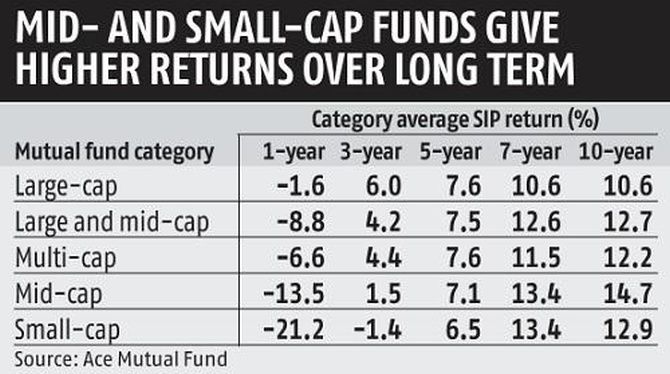Those just starting their careers should avoid adding to their liabilities, especially if they already have an education loan.
They should think hard before taking a car or home loan.
Sanjay Kumar Singh reports.

Sandeep Ganesh, 27, will soon complete his post graduate programme in management from the Indian School of Business and begin working for Bain and Co at a salary of around Rs 25 lakh.
Like Ganesh, many more of the country's best and brightest will graduate from elite business schools and engineering colleges and begin their careers this summer.
It is important that they begin their saving and investment journey on the right note.
It is only by making an early start that they will be able to enjoy the power of compounding, which can have a truly transformative impact on wealth formation.
Make the most of limited savings: Despite their high salaries, these young graduates may have limited savings initially.
Many students nowadays take education loans. Ganesh, for instance, has a Rs 35 lakh loan on which the EMI will come to around Rs 55,000.
After paying taxes, he expects to get around Rs 1.8 lakh in hand. Deduct the EMI and he will be left with around Rs 1.25 lakh.
Being posted in Mumbai, he will have to shell out Rs 35,000 on rental. Food, travel and utility bills could eat away a further Rs 20,000, while social expenses may account for another Rs 20,000 to Rs 30,000.
Thus, the reality is that he may finally be left with just around Rs 40,000 to Rs 50,000 at the end of each month.
"Subtract your non-discretionary expenses from your in-hand salary. Of the amount that is left, aim to save and invest at least 50 per cent," says Deepesh Raghaw, founder, PersonalFinancePlan.in, a Sebi-registered investment advisor.
Young graduates need to avoid a few mistakes at this stage.

"Even people with this kind of profile can at times be lazy at money management. They allow their money to sit idle in a bank account and do not make it work hard for them. Some of them also become too adventurous. Being sharp and smart, they at times get into highly complex and risky investments. They do not take advice and end up losing money on such investments," says Radhika Gupta, chief executive officer, Edelweiss Asset Management.
Those just starting their careers should also avoid adding to their liabilities, especially if they already have an education loan.
They should think hard before taking a car or home loan.
"If you make too many financial commitments too soon, you will not be left with as much money to invest as you ideally should. Also, a sudden expense could put you in a tight spot," says Raghaw.
Before you begin to invest, build an emergency corpus.
This is especially important for people with an education loan.
Ideally, it should equal six months of expenses and EMIs. Those who have dependent parents or siblings must buy term insurance and a personal accident cover.
Since your employer is likely to provide a group health cover, you may defer the purchase of a personal health cover, though you should buy one within a couple of years.
Asset allocation holds the key: Next, develop your goals -- short-term (one-year), medium term (three-year) and long-term (five-year and above).
Mentally, at least, maintain separate portfolios for each goal.
Equities should be used only for longer-term goals that are five years or more away.
Even in a longer-term portfolio (such as to buy a house or to save for retirement), do not make a 100 per cent allocation to equities.
Financial planners say most people are not fully aware of their risk appetite until they have actually been through a bear market.
"When I first started earning, I too had put too much money into equities, at a time when I was not fully prepared to bear its volatility," says Gupta.
Hence, follow an asset allocation approach even in a long-term portfolio.
Young people, of course, should have a portfolio that is tilted towards equity.
If you believe you have a higher risk appetite, opt for 70 per cent in equities and 30 per cent in debt.
More conservative investors may go for a 60:40 or 50:50 split.

Next, decide on the category allocation for the equity side of your portfolio. Large-cap funds provide greater stability.
While mid- and small-cap funds have the potential to deliver higher returns over the long term, they can also be extremely volatile.
Those who believe they have a higher risk appetite may opt for a 50 per cent allocation to large-cap funds, 25 per cent to mid-cap funds, and 25 per cent to small cap.
More conservative investors may opt for, say, a 70-20-10 mix.
"For your large-cap allocation, opt for a 50:50 split between a passive index fund (or exchange traded fund) and an active fund. For your mid- and small-cap allocation, go for actively-managed funds," says Vishal Dhawan, chief financial planner, Plan Ahead Wealth Advisors.
When selecting actively-managed funds, zero in on consistent performers.
"Opt for fund managers that have displayed the ability to beat their benchmarks in rising markets and decline less than them in falling markets," says Nikhil Banerjee, co-founder, Mintwalk.
Debt for safe and steady returns: On the debt side, among long-term instruments you would already be investing in Employees Provident Fund.
Open a Public Provident Fund account as well.
Debt funds are also attractive for those in the highest tax bracket as they are more tax efficient than fixed deposits over a three-year plus horizon.
"Use liquid funds and ultra-short-term funds for short-term cash flow management. For three-year goals, use short-term debt funds, or corporate bond funds," says Gupta.
Investors, she adds, should not get too adventurous with debt funds. In other words, avoid funds that take too much of either duration or credit risk.











